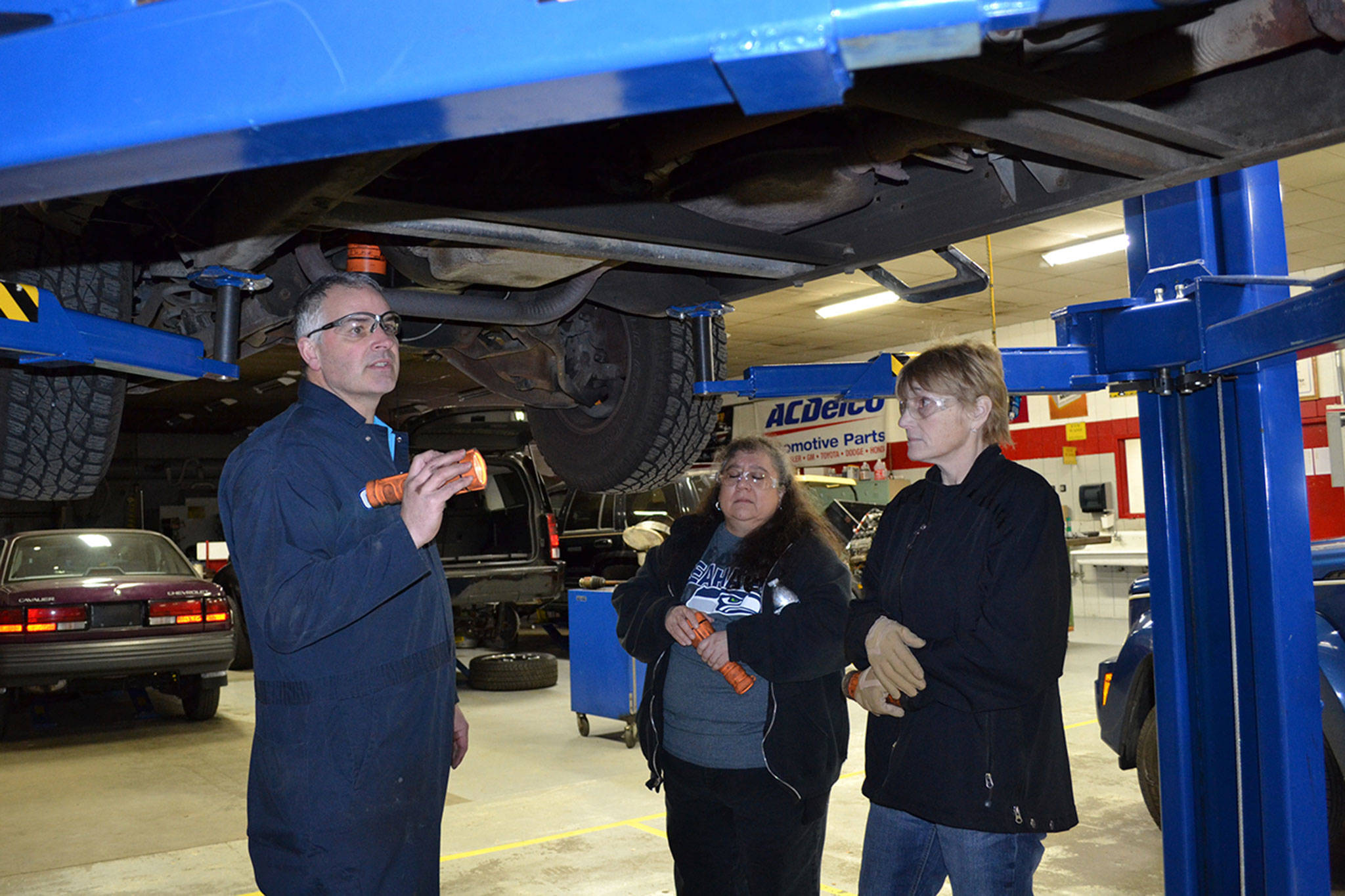MARYSVILLE – When people have problems, they often go to a mediator. They want that third-party perspective from someone who doesn’t have a stake in the issue. But what do you do if the problem is with your car? Trust can be a big issue.
Enter Chuck Nichols, the auto shop teacher at Marysville-Pilchuck High School. He is part of a Department of Ecology program called “Don’t Drip and Drive.” If you attend, he will look over your car and give you advice. And unlike a counselor or attorney, it’s free. “I’ll give an honest opinion of the car,” he said. John Hertog of Lake Goodwin had his classic 1966 Pontiac GTO – “the first muscle car” – looked at by Nichols last Saturday. He lives on a lake and didn’t want oil or fluids polluting the water. Hertog got the car 10 months ago for his birthday and takes it to car shows.
After hoisting up the car, Nichols did find an oil leak. Much of the undercarriage had oil on it. “There’s a leak, but where is it?” he said.
After more observation, he decided it must be near the oil pan drainage plug. Maybe a gasket is all that is needed.
He explained that while the car is in motion wind likely carried oil to other parts of the undercarriage. “It doesn’t always drip,” Nichols said, adding oil can adhere to dirt and stick to the car.
While Nichols didn’t see any other leaks, he did recommend that Hertog change coils on the car, or at least get shocks with coils on them, to help the car not ride so low in back.
Karie Christensen of the WSU Extension Office, another partner in the program, said the goal is to educate the public about how stopping leaks is better for the environment, along with the car.
“Seven million gallons of oil is dumped into Puget Sound each year,” she said. “That equals a tanker load of motor oil.”
Along with looking over the cars, Christensen said the program includes a 30-minute video and about an hour in a classroom, where participants learn about the leaks and how to fix them. That interested participant Carol Montgomery of Stanwood.
She’s retired, “So I want to do more stuff on my own. I didn’t even know where stuff was located. I can’t afford to have anything done.” She brought it in to Nichols because friends had been telling her to trade it in. “I wanted peace of mind,” she said.
Nichols gave that to her. “Looks pretty dry,” he said. “Better keep it. There’s nothing wrong with it.”
Nichols said newer cars are more environmental friendly than older ones. For example, in years past, a hose from the radiator just spilled out onto the ground if it overheated. Now it is collected in a container.
“Anything that gets into the stormwater gets into Puget Sound,” he said.
M-P workshop schedule
March 8 5:30-9 p.m.
March 25 10 a.m. – 2 p.m.
April 12 5:30-9:30 p.m.
April 22 10 a.m. – 2 p.m.
May 3 5:30-9:30 p.m.
May 20 10 a.m. – 2 p.m.
June 7 5:30-9:30 p.m.



